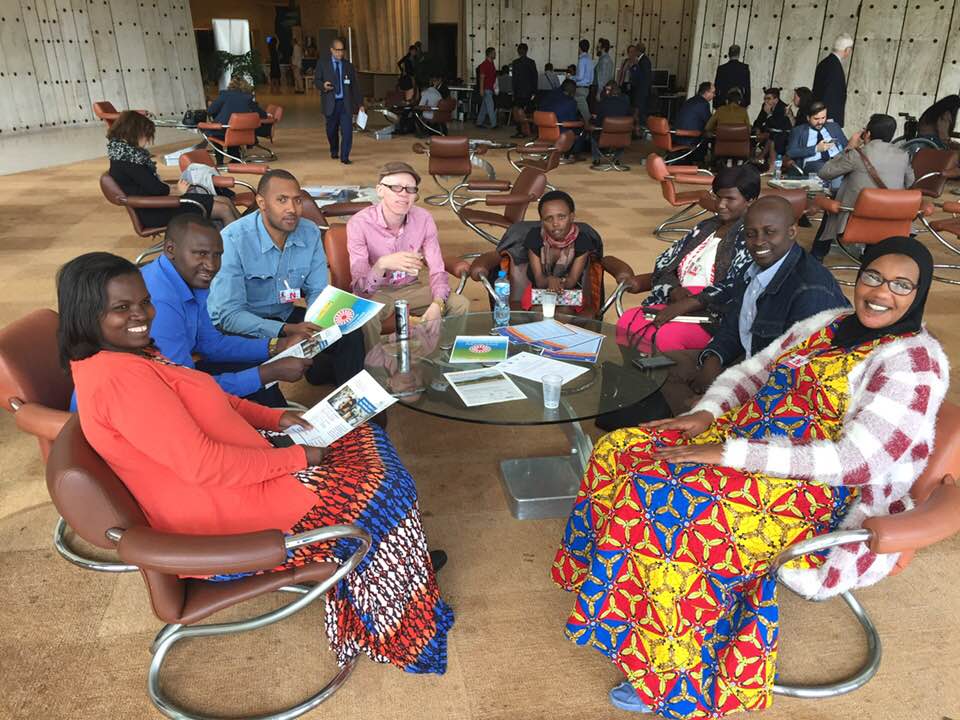Blog
Making Development Processes Inclusive: Experiences from Rwanda and Malawi

The 2030 Agenda for Development provides a useful basis to address traditional development problems by applying human rights principles. The principle of “leaving no one behind” clearly reflects the commitment to inclusive development and the idea of putting people at the center of development (United Nations, 2015). In the disability rights field, the Convention on the Rights of Persons with Disabilities, which entered into force in 2008, also embraces the human rights-based approach to development, by making the development process accessible to persons with disabilities and ensuring involvement in decision-making processes (CRPD, Article 4 and 32).
In a recent article published by the Journal on Disability and International Development, I reflected on the extent to which the Sustainable Development Goals (SDGs) support the realization of the CRPD’s goals and ambitions in Malawi and Rwanda. Rwanda and Malawi ratified the CRPD in 2008 and 2009 respectively, and both countries are committed to implementing the SDGs. The Disability Rights Fund (DRF) and its sister organization, the Disability Rights Advocacy Fund (DRAF), have been active in both countries since 2013 and 2014, respectively.
The result of the analysis suggests, in general terms, that the SDGs have opened up new opportunities for DPOs to participate in national development programs and to advance rights provided in the CRPD – in the following ways:
First, the umbrella organizations in both countries – given their capacity and reach – adopt a relatively broad approach to CRPD and SDGs monitoring and implementation, while other DPOs are focused on advocating for specific rights and goals.
Second, DPOs have access to expanded and diversified mechanisms for participation, including with new stakeholders, such as governments, the United Nations and donor venues and forums. (One example is DFID’s Global Disability Summit in July 2018.)
Third, DPO work on the SDGs has enabled them to build bridges and engage with other rights groups and research institutions.
Fourth, DPO work on the SDGs has enabled them to focus their approach on specific rights in the CRPD as opposed to general CRPD implementation. Instead of advocacy for “increased accessibility for persons with disabilities” or general awareness raising initiatives, the SDGs are enabling a more targeted approach. For instance, the Association of Persons with Physical Disabilities (APDM) is advocating for accessible Water and Sanitation (WASH) by combining CRPD article 9 (accessibility) and SDG 6 (Water and Sanitation).
Despite these openings, participation is still inaccessible for many persons with disabilities because of a lack of consideration of accessibility issues and reasonable accommodation – essential elements to ensure true participation. For instance, the Rwandan National Association of Deaf Women reported that:
“Despite several engagement[s] with the National Platform on Social Protection RNADW is still ignored due to misconception and stigma about disability. When we (RNADW) are invited, they usually do not provide sign language interpreter[s], making it difficult for us to meaningfully participate and raise our concerns”.
Tying new opportunities for participation back to the right to participate is critical, and in this way, the SDGs won’t be achieved without utilization of the CRPD. Last week, for instance, a delegation of six DPO representatives from Rwanda traveled to Geneva to attend the 10thpre-sessional meeting of the CRPD Committee. There, they brought the SDGs into the room, when speaking about the need for the government to include persons with disabilities in national development programs such as the Economic Development and Poverty Reduction Strategy (EDPRS), ‘one cow per poor family’, the health insurance scheme known as Mutuelle de Santé, among others. Rwandan delegates noted “without including persons with disabilities in national and local development programs, Rwanda will not be able to achieve the Sustainable Development Goals.” (Download the List of Issues for Rwanda from the Committee on the Rights of Persons with Disabilities (CRPD Committee).)
To read Jorge Manhique’s full article on this topic in the Journal on Disability and International Development, click here.
To read a Press Release about the DPO delegates from Rwanda who spoke to CRPD Committee members, click here.
Jorge Manhique – is currently working as Program Officer for Africa (Malawi and Rwanda) at the Disability Rights Fund and Disability Rights Advocacy Fund. Jorge has a Master of Laws (LLM) degree in International and Comparative Disability Law and Policy from the National University of Ireland – Galway.